八段锦包治百病
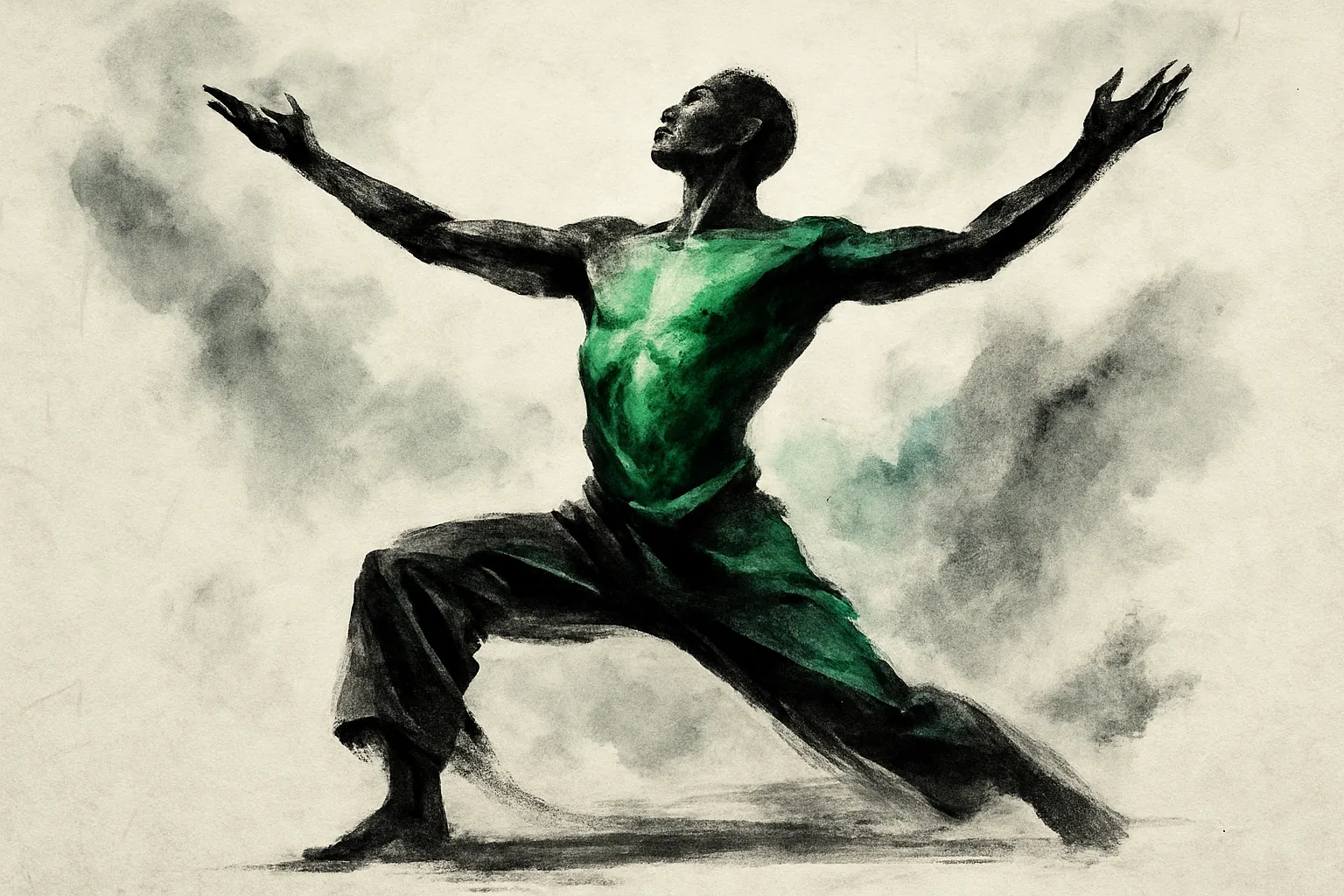
We found 14 studies prove that 8 Pieces of Brocade Qigong (Ba duan jin) cures all kinds of diseases. Below is a summary of the main studies from the past few years.
健康 Qigong Ba duan jin is one of the best traditional Chinese methods of maintaining health. Our ancestors compared it to the wonderful brocade (jinduan) for its delicacy, and as it consists of eight pieces, it came to be called “Ba duan jin” (“Eight pieces of brocade”).
The Eight Pieces of Brocade is an independent but complete method of health maintenance that integrates the yinyang, five elements, empty power, meridians, and related theories of Traditional Chinese Medicine. The functions of Ba duan jin are the training of the ability to balance, the prevention and treatment of diseases, as well as the correction of the figure of the occupant.
In addition, it is characterized by high relevance and wide application. It is a method of maintaining health that combines static and dynamic movement, physical and mental interaction, and the functions of treating illness and maintaining health. The latter is an active discussion to this day, so we decided to talk about it from a scientific point of view.
Short History of Ba duan jin
The history of the origin of Baduanjin goes back to the Northern Song dynasty (960-1127 AD). The earliest record of Baduanjin appeared in Zhongzhai Du Shu Zhi, (Zhongzhai Record Book) written by Chao Gongwu. Another mention of it appeared in Wen Yuan ge shu mu (The Bibliography of Wen Yuange), a book authored by Yan Shiqi during the Ming dynasty (1368-1644 AD). One of Yang’s contemporaries, Gao Liang, wrote a monograph on health preservation entitled Zun sheng ba jian (Eight Essays on Health Preservation).
Ba duan jin in terms of science
In one of the writings entitled “The Baduanjin Guide Method” the author commented as follows: “It should be performed until late afternoon, for that is the best time. Repeat and reverse again as the Eight Diagrams (Bagua) does. “This description indicates that the ‘Ba (Eight)’ in the name Baduanjin has a deeper meaning than the eight movements performed. In addition, the “Jin” in Baduanjin can be thought of as a combination of sequentially directed methods, flowing like a moving silk brocade, indicating that the methods are linked and constrained by each other, relentlessly recycling and changing places.
The exercise methods of the current wellness qigong Baduanjin consist of three parts, including the idea, the breath, and the posture. The practice of Baduanjin emphasizes the harmonious regulation of the heart, breath, and body. It requires the interactive coordination and connection of these three regulations in order to bring in qi and increase circulation. The movements of Baduanjin are easy to master. The formulas of the movements are laid out in verse, so they are easy to memorize and popularize. The practice of Baduanjin is useful in regulating the health of various groups, so it is of great importance. Research conducted over the past few years leads to several conclusions.
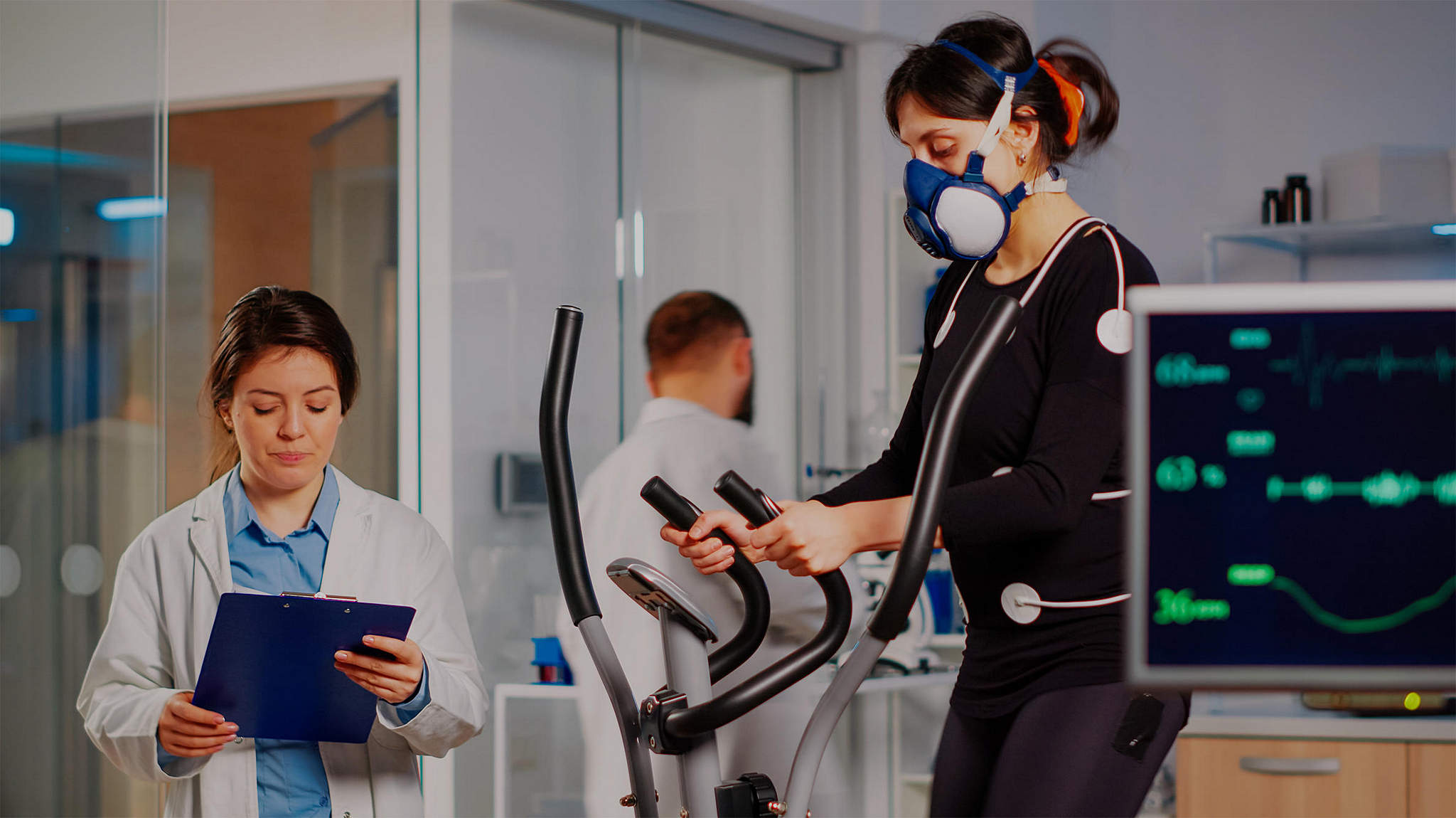
Suboptimal health group
Study 1
According to a report in the Chinese Journal of Basic Medicine in Traditional Chinese Medicine, 129 subjects were divided into two groups, one of which included 62 people who practiced Baduanjin exercises, while the remaining 67 made up the other group and served as a control group. The baseline scores of the two groups had no differences, except that the sitting forward tilt scores of the control group were significantly higher than those of the Baduanjin group.
Statistical data showed that at week 6, lung capacity, step test index, grip strength, forward leaning, closed-eye and one-leg stance, and simple reaction time in the Baduanjin group were relatively higher than the baseline values. While in the control group, only the grip strength, forward bending, closed-eye standing, and one-leg standing increased. At the same time, the step-test index and forward leaning indices in the Baduanjin group were higher than in the control group. As a conclusion Baduanjin can help cure chronic fatigue.
Study 2
In another similar report on Guangdong Medicine, Wu Yanming divided 175 subjects into two age groups, and each group was divided into three subgroups, namely, the control group, the health education group, and the Baduanjin group.
The result showed that in the Health Training group and in the Baduanjin group, people between the ages of 35 and 55 had improved energy and people between the ages of 56 and 75 had improved body treatment. The health status of all subjects improved comparatively. In the Baduanjin group, people between the ages of 56 and 75 had improved social functions, physical and emotional role functions.
It was concluded that Baduanjin exercises, combined with health education, improve the quality of life of people with impaired health who suffer from diabetes.
Study 3
A study by Jaing Min et al, published in the World Journal of Integrated Traditional and Western Medicine, found that wellness qigong – Baduanjin can help the practitioner improve internal organ function and physical fitness; it can also be useful in resisting disease and aging, and in treating some chronic diseases.
An unhealthy condition is caused by an imbalance of yin-yang, dysfunction of internal organs, disruption of qi and blood, and dysfunction of the physical body and mind. The flow of qi and blood, as well as the functions of the organs, are regulated during the Baduanjin exercises, so psychologically the state of mind improves and physically the work of the internal organs improves. In this way, the practitioner will have enough strength to resist disease and form a healthier body. In this way, the goal of correcting an unhealthy condition is achieved.
Study 4
Geng Yuanqin and others share this view in an article published in the Chinese Journal of Traditional Chinese Medicine. In the article, Geng says that doing the exercises of health Qigong Baduanjin – helps to strengthen the five internal organs. By improving organ functions, Baduanjin is very effective in getting rid of bad moods and regulating psychological health. He believes that Baduanjin health Qigong exercises can provide a new method of changing the state of chronic fatigue.
For middle-aged and elderly people
Study 1
According to a study published in the Journal of Beijing Sports University, Wang Songtao et al. selected 100 healthy older adults of each sex who were not used to exercising in their daily lives (men aged 61-65 years, women aged 56-60 years).
The test subjects were randomly divided into two groups: the control group and the Baduanjin exercise group. The latter group practiced Baduanjin health Qigong for six months, with a frequency of seven times a week, an hour for each time.
Subjects were tested before the study, at month 3, and at month 6 during the study using the SF-36 questionnaire(https://www.bmj.com/content/bmj/305/6846/160.full.pdf).
The result showed that after a period of Baduanjin classes, the physical function (PF), disability induced physical health (RP), vitality (V’T), social function (SF), physical condition questionnaire (PCS) and mental condition questionnaire (MCS) of the subjects improved markedly. Thus, it has been proven that health Qigong Baduanjin is useful for improving the quality of health of the elderly.
Study 2
Tang Qinhua’s study came to the same conclusion as the present. According to the journal of the Physical Education Institute of Shanxi Pedagogical University, Tang conducted a comparative experiment on the Baduanjin exercise, using the group separation method.
The result of the study showed that Baduanjin health Qigong had positive effects on the physical condition and quality of retired college/university teachers, including their weight, body mass index, waist-to-hip ratio, upper blood pressure, lower blood pressure (for women), forward bending, closed-eye and one-legged stance, waist circumference, lung capacity and grip strength.
Pan Huashan believes that after one year of training, stroke volume (SV), stroke index (SI), cardiac output (CO), arterial elasticity coefficient (FEK), arterial extensibility (AC), and vital capacity of subjects increase, while left heart work index (LVwI), cardiac oxygen index (HOI), systolic blood pressure (SP), total physical response (TPR), and aortic blood retention factor (BLK) decrease.
This indicates that practicing Baduanjin health qigong can improve the compensatory pumping power of the heart, myocardial contractility and blood stroke volume, and relieve the strain on the heart. It helps improve the elasticity of blood vessels and lung function; it can increase blood value, improve blood flow and rate of concentration. All of these features have a positive effect on the respiratory system of the elderly.
Study 3
Another interesting result was published in the Chinese Journal of Clinical Rehabilitation by Huang Tao et al. They believe that practicing Baduanjin health Qigong can increase serum levels of nitric oxide and superoxide dismutase (SOD) activity, as well as reduce serum levels of propylene glycol and lipid peroxidation. Thus, the performance of Baduanjin promotes resistance to aging.
Increases in serum nitric oxide and SOD activity are more evident in older men who participate in sports, and decreases in serum propylene glycol levels are more evident in older women who participate in sports; there is no difference in the previous three indices between the groups of middle-aged men and women.
Study 4
He Jinghe et al. published a study in the Journal of Medical Institution of Chinese Armed Police Force (CAPF) that said that practicing Baduanjin health qigong can improve SOD activity in older women, slow free radical damage, increase sex hormone levels, and improve neuronal response and balance (one-legged standing) ability.
Study 5
Another study by Wang Songtao, published in the Journal of Chinese tissue engineering research and Clinical rehabilitation, also comes to the same conclusion that regular Qigong Baduanjin exercises can slow the rate of intellectual decline in older people.
For the youth group
Study 1
According to a report in the Journal of Medicine and Society, Hongfu Liu et al. conducted an experiment on wellness qigong Baduanjin, taking university students as test subjects.
The experiment lasted for 12 weeks, and at the end of the experiment, the subjects’ psychological state was assessed and tested using the POMS method. The value of tension, anger, fatigue, depression, panic, and general value clearly decreased; among these, the decrease in tension, panic, and general value reached a significant level; the decrease in depression was extremely outstanding; and the value of energy and self-esteem increased, but not very noticeably.
This suggests that Baduanjin health Qigong enhances the self-control and psychological regulation abilities of those practicing it. It is useful for the psychological development of university students.
Study 2
Zhou Xinxin published her research in the journal Zhejiang Sports Science. In the study, she instructed her subjects, 100 female students, to practice Baduanjin health qigong for 15 weeks, and at the beginning and end of the study, she checked six of the subjects’ scores, including their weight, body fat content, heart rate, vital capacity, squat and stride, and 800-meter running record.
The results showed significant changes, indicating that practicing Baduanjin health qigong can reduce the weight and body fat of university students, increase heart rate, increase lung capacity, and improve aerobic endurance and flexibility quality.
Thus, we can conclude that the classes of wellness qigong Baduanjin can improve the overall level of physical performance of students.
Study 3
Liu Hongfu, in his study that we mentioned in the previous section, also believes that the Baduanjin exercise has a significant effect on the physical body, tension and other symptoms. He says it has a positive effect on symptoms of obsessive-compulsive disorder, depression, hostility and overall performance.
His research shows that Baduanjin health Qigong is useful for increasing the practitioner’s ability for self-control and psychological regulation. This has a beneficial effect on the psychological development of university students.
Study 4
The Journal of Massage and Rehabilitation Medicine reports that Lu Huang observed changes in the index of physical function that occurred in his subjects, 80 healthy college students, before and after a Qigong – Baduanjin health class. The result showed that after four months of exercise, the subjects’ weight and BMI decreased, while their body mass index (BMI) and body fat percentage increased. The results also show that regular exercise of Baduanjin health Qigong, 30 or 50 minutes at a time, can significantly improve the lung function and aerobic capacity of adolescents. The longer the exercise time, the greater the improvement in vitality can be achieved.
Study 5
In his study published in the Journal of Jiamusa College of Education, Diao Yangbin noted that the wellness qigong Baduanjin is an exercise that involves stretching the entire body and is combined with deep breathing. It has not only a regulatory function for the internal organs, but also takes care of the health of the muscles and bones of the lower back. This is useful for correcting the unhealthy posture of middle school students, as well as strengthening the muscles and increasing their strength.
General conclusion
Thus, by practicing Baduanjin health Qigong, which directs qi with the help of the mind and statics with the help of dynamics, promoting qi recirculation and blood flow, the practitioner, in accordance with the mental and physical features of his body, fills the whole body with fresh qi and blood and gets rid of all kinds of diseases.
Thus, regular practice of Baduanjin achieves a significant effect of disease prevention and health care. That is why we recommend that the health-improving qigong of Baduanjin is worthy of promotion and popularization among various groups of people.

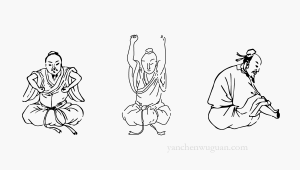
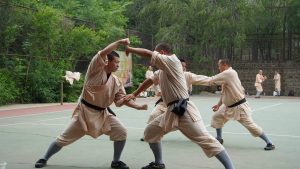
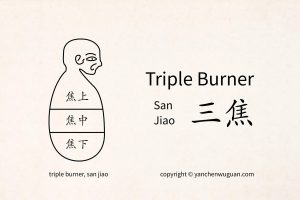

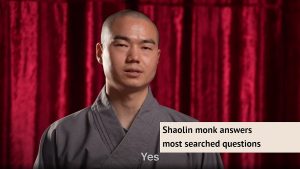
你问对了问题。我们的社区非常支持初学者。希望很快能在瑜伽垫上见到你!
关注这个博客有一段时间了。
你好!你说得很好。如果您想亲自体验课程,我们的大门永远为您敞开。欢迎随时前来试课。.
我们喜欢倾听敬业学员的心声。培训是一段旅程,每个人都有自己的节奏。如果您还有其他问题,请告诉我们。.
回复上面的评论:冷静点,这只是个博客。.
感谢您分享自己的想法!释延参大师常说,耐心是学习的第一项技能。如果您还有其他问题,请告诉我们。.
问题 - 这如何应用于实际搏击?.
我们喜欢倾听敬业学生的声音。你不需要完美,你只需要在场。我们的团队.
感谢您的分享。已保存到书签(通常我再也不会打开了,笑)。...
我们喜欢倾听热心学生的意见。如果您想亲自体验课程,我们的大门永远为您敞开。向您致以最诚挚的问候。.
你好!这其实是一个很好的观点。训练是一段旅程,每个人都有自己的节奏。欢迎随时来试听课程。.
关注这个博客有一段时间了。
我很欣赏你的坦诚。最重要的一步就是去上课。希望很快能在瑜伽垫上见到你!